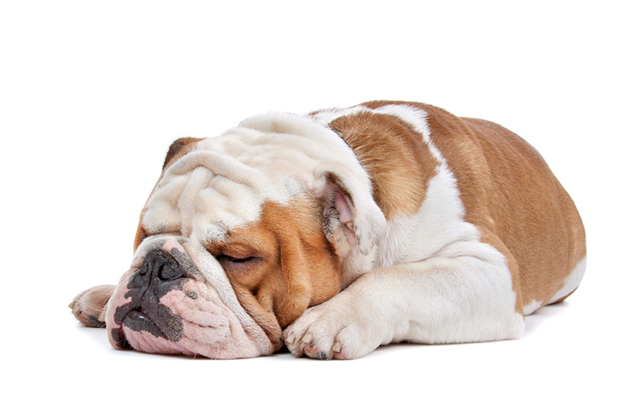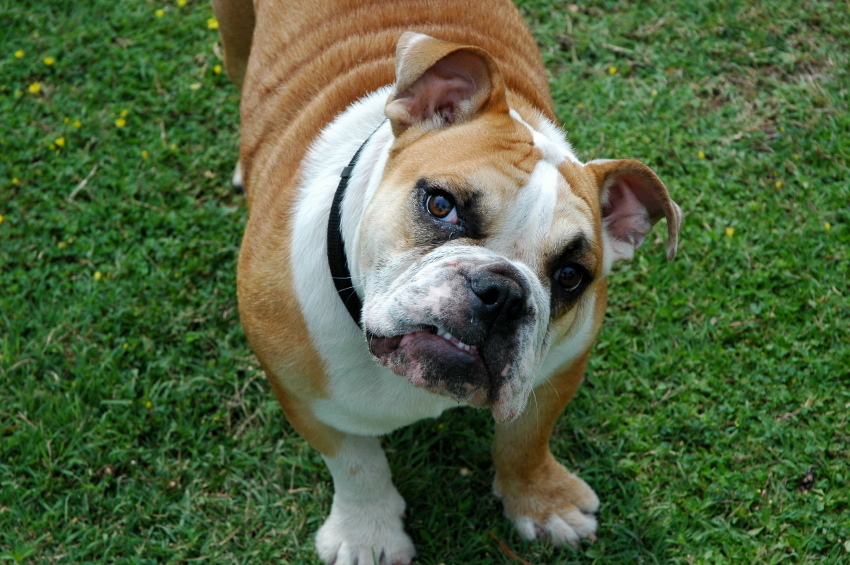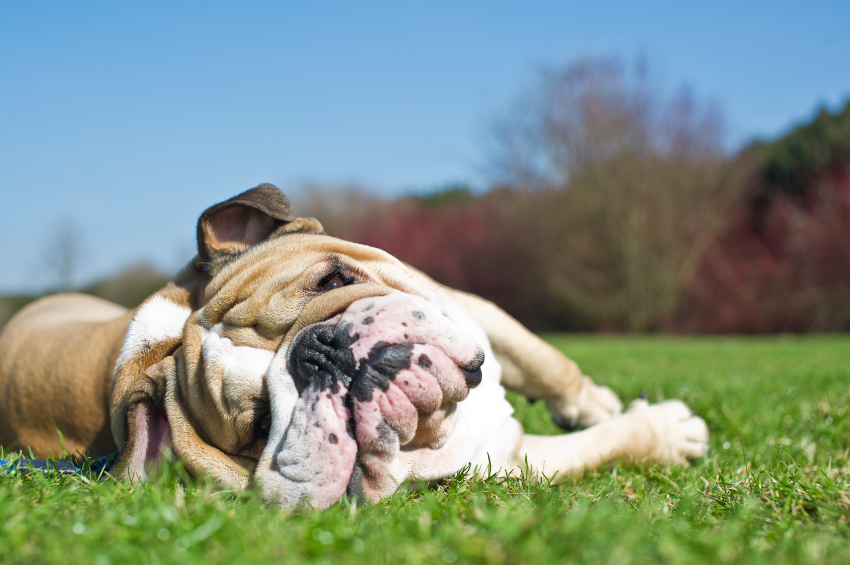Obesity, lack of proper care, and frequent use of steroid medications may cause hypothyroidism in Bulldogs. With many symptoms of underactive thyroid overlapping with signs of various other health disorders, owners often failed to notice and treat the problem in their pets. When left untreated for long, hypothyroidism may cause a dog to develop a host of physical and psychological problems.

What is Hypothyroidism in Bulldogs?
Hypothyroidism is a condition in which the thyroid gland of a dog becomes underactive. The thyroid gland produces a hormone called thyroxine, which is crucial for the metabolism – the process of converting food into energy – in the body. When your Bulldog has hypothyroidism, his thyroid gland is not functioning properly leading to the lack of adequate level of thyroxine required for his body functioning.
The disease often occurs in dogs aged between 4 and 10. Hypothyroidism is also common in spayed female and neutered male Bulldogs. However, there is no unanimity over the exact reason behind such occurrence. Though not really life threatening in the immediate future, it may cause complications in the long term. But, the good news is that hypothyroidism responds well to continuous medication.
Causes of Hypothyroidism in Bulldogs
There are different reasons behind the development of hypothyroidism in dogs. The most common of these are:
- Obesity
- Lack of regular physical activity
- A tumor in the thyroid gland
- Decrease in size of the thyroid gland
- Intake of certain medications, such as corticosteroids
- Deficiency of nutrients and iodine
- Autoimmune disorders
Hypothyroidism in Bulldogs may also occur when a dog’s immune system mistakenly starts attacking the thyroid gland.
Symptoms of Hypothyroidism in Bulldogs
The common symptoms visible in your Bulldog with Hypothyroidism are:
- Anemia
- Dry skin
- Dark skin patches
- Excessive sleepiness/lethargy
- Dull coat
- Excessive hair loss or shedding (usually on the torso, tail, and/or hind legs)
- High blood cholesterol
- Muscle loss
- Weight gain
- Slow heart rate
- Toe nail infection
- Ear infections
Your Bulldog may live for years with undetected hypothyroidism. But as he grows older, the quality of his life may start to be affected. If your pet gains weight despite being him on a good diet and a regular exercise regimen, you must consult your vet.
Hypothyroidism can be easily diagnosed with blood work. Additional tests may also be done if your Bulldog has seizures or heart problems. An X-ray may also be taken to see if there is any tumor in the thyroid.
Forms of Hypothyroidism in Bulldogs
Primary Hypothyroidism
In adult Bulldogs, this form of hypothyroidism is caused by the destruction of the pituitary gland. Primary hypothyroidism is often caused by:
- Lymphocytic thyroiditis – an immune system-related condition
- Idiopathic atrophy – a condition causing the replacement of the thyroid tissue by a fatty tissue
This is the most common form of hypothyroidism in Bulldogs, and it accounts for at least 95 percent of all cases.
Secondary Hypothyroidism
This form of hypothyroidism in Bulldogs is rare. It occurs when a tumor grows or invades the thyroid gland, replacing the healthy thyroid tissue. Tumors, especially malignant ones, reduce the thyroid’s hormone production. However, thyroid cancer is very rare in dogs.
Other Uncommon Forms of Hypothyroidism
Sometimes, abnormal growth within the thyroid gland or destruction of thyroid tissue (neoplastic) is caused by iodine deficiency. Rare forms of hypothyroidism in Bulldogs are also traced to congenital or juvenile issues.
Treating Hypothyroidism in Bulldogs
Primary hypothyroidism can be easily treated using medications, such as levothyroxine or L-thyroxine, which help maintain normal hormone levels. Regular testing is also needed to ensure that the medication is working properly.

